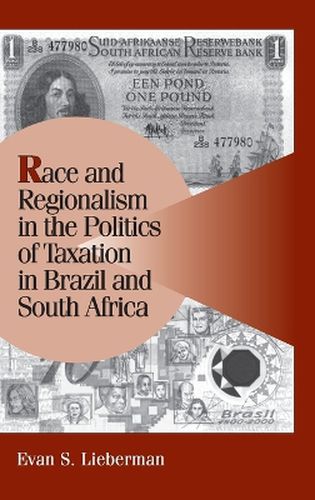Readings Newsletter
Become a Readings Member to make your shopping experience even easier.
Sign in or sign up for free!
You’re not far away from qualifying for FREE standard shipping within Australia
You’ve qualified for FREE standard shipping within Australia
The cart is loading…






Nationally-specific definitions of citizenship proved decisive for the development of the Tax State in Brazil and South Africa in the twentieth century. Although both countries had been divided along racial and regional lines in the late nineteenth century, watershed constitutions addressed these political problems in very different ways. South Africa’s institutionalized white supremacy created a level of political solidarity that contributed to the development of a highly progressive and efficient tax system. In Brazil, federalism and official non-racialism proved more divisive, making the enactment and collection of progressive taxes much more difficult. The legacy of these divergent state-building processes remains evident at the beginning of the 21st century. Lieberman extends this analysis to a wider group of country cases and finds similar patterns and causal relationships between the politics of race, region, and taxation. The findings are based on field research, large-scale national surveys, macroeconomic data, and various archival sources.
$9.00 standard shipping within Australia
FREE standard shipping within Australia for orders over $100.00
Express & International shipping calculated at checkout
Nationally-specific definitions of citizenship proved decisive for the development of the Tax State in Brazil and South Africa in the twentieth century. Although both countries had been divided along racial and regional lines in the late nineteenth century, watershed constitutions addressed these political problems in very different ways. South Africa’s institutionalized white supremacy created a level of political solidarity that contributed to the development of a highly progressive and efficient tax system. In Brazil, federalism and official non-racialism proved more divisive, making the enactment and collection of progressive taxes much more difficult. The legacy of these divergent state-building processes remains evident at the beginning of the 21st century. Lieberman extends this analysis to a wider group of country cases and finds similar patterns and causal relationships between the politics of race, region, and taxation. The findings are based on field research, large-scale national surveys, macroeconomic data, and various archival sources.